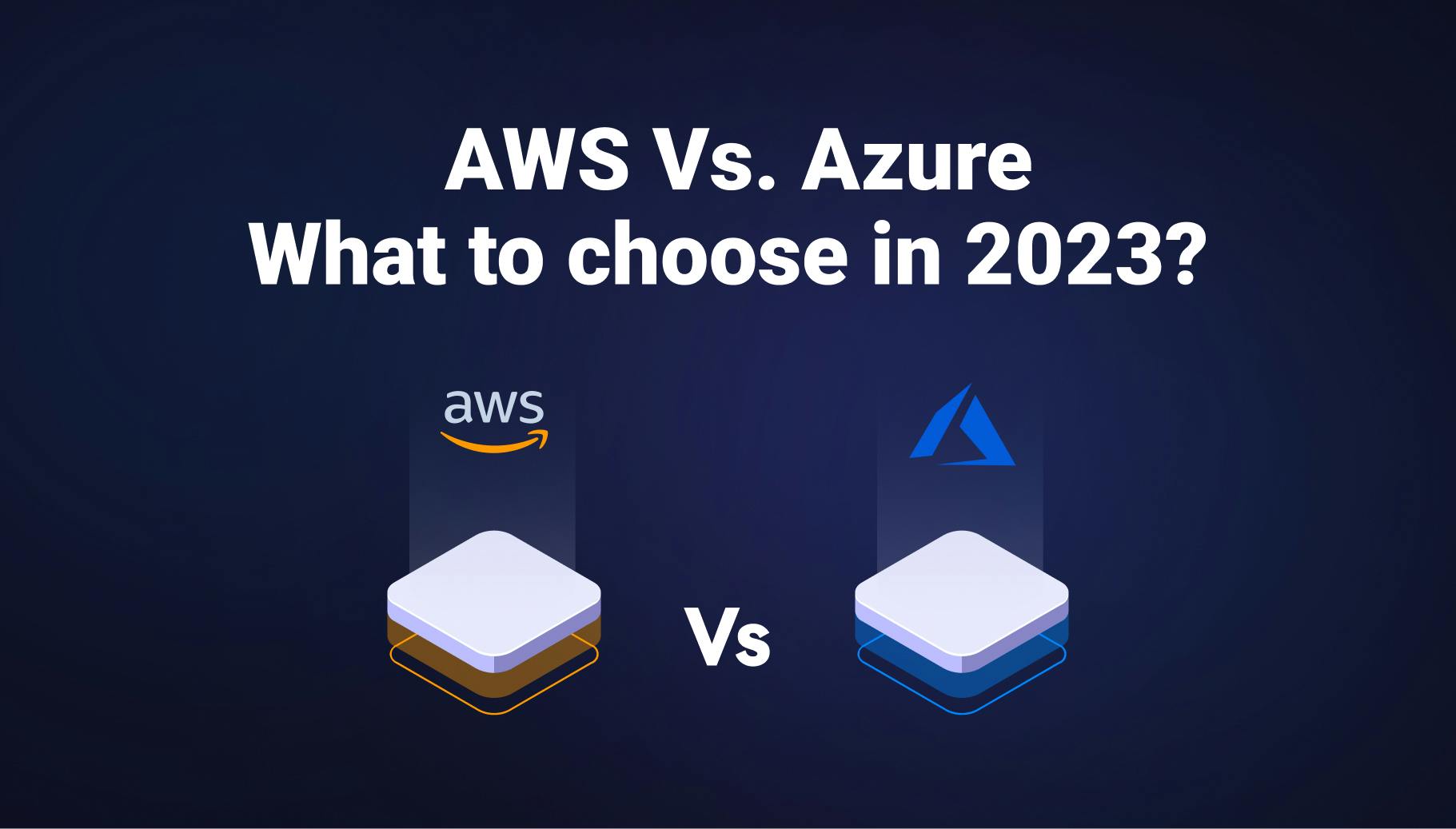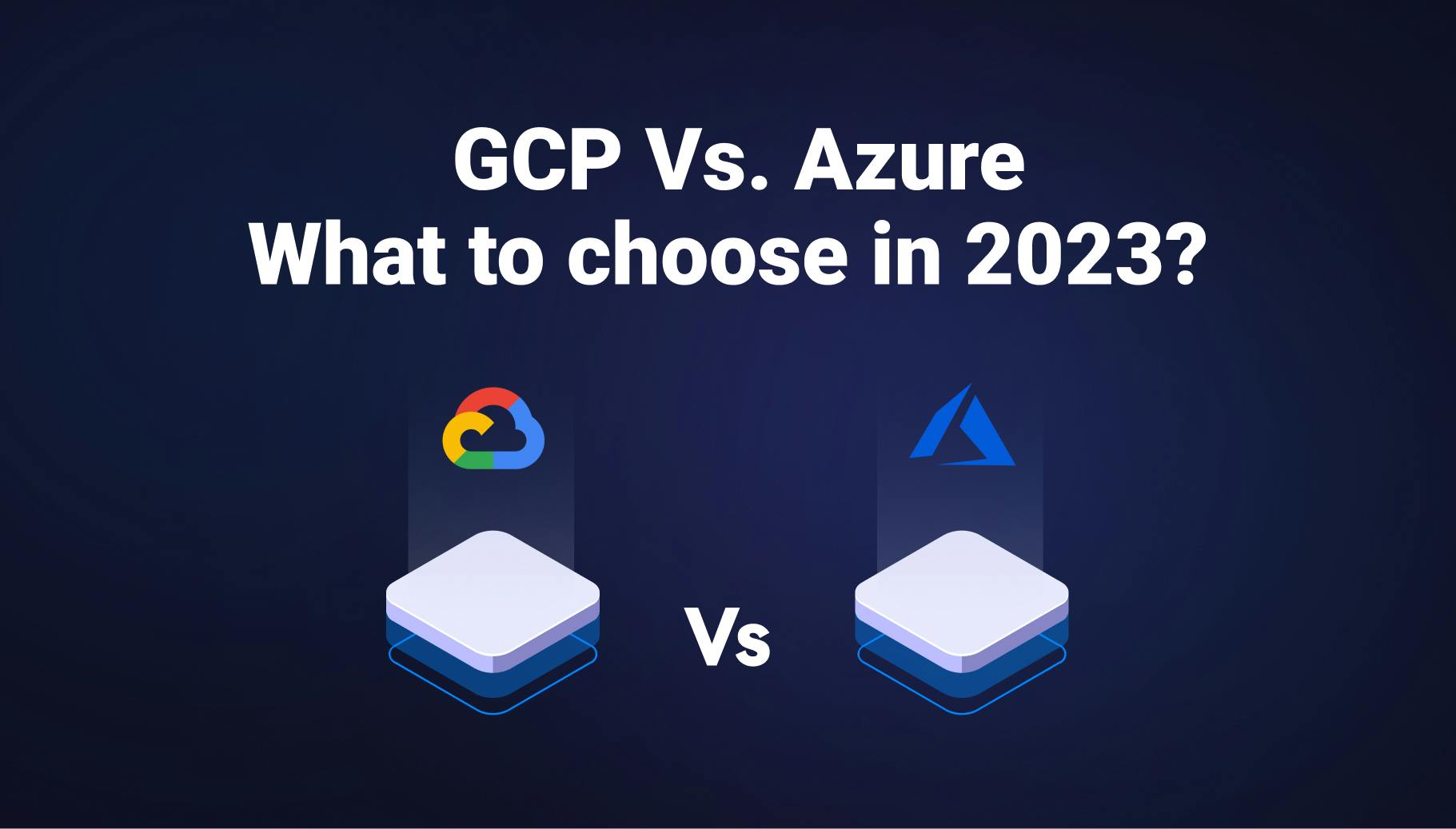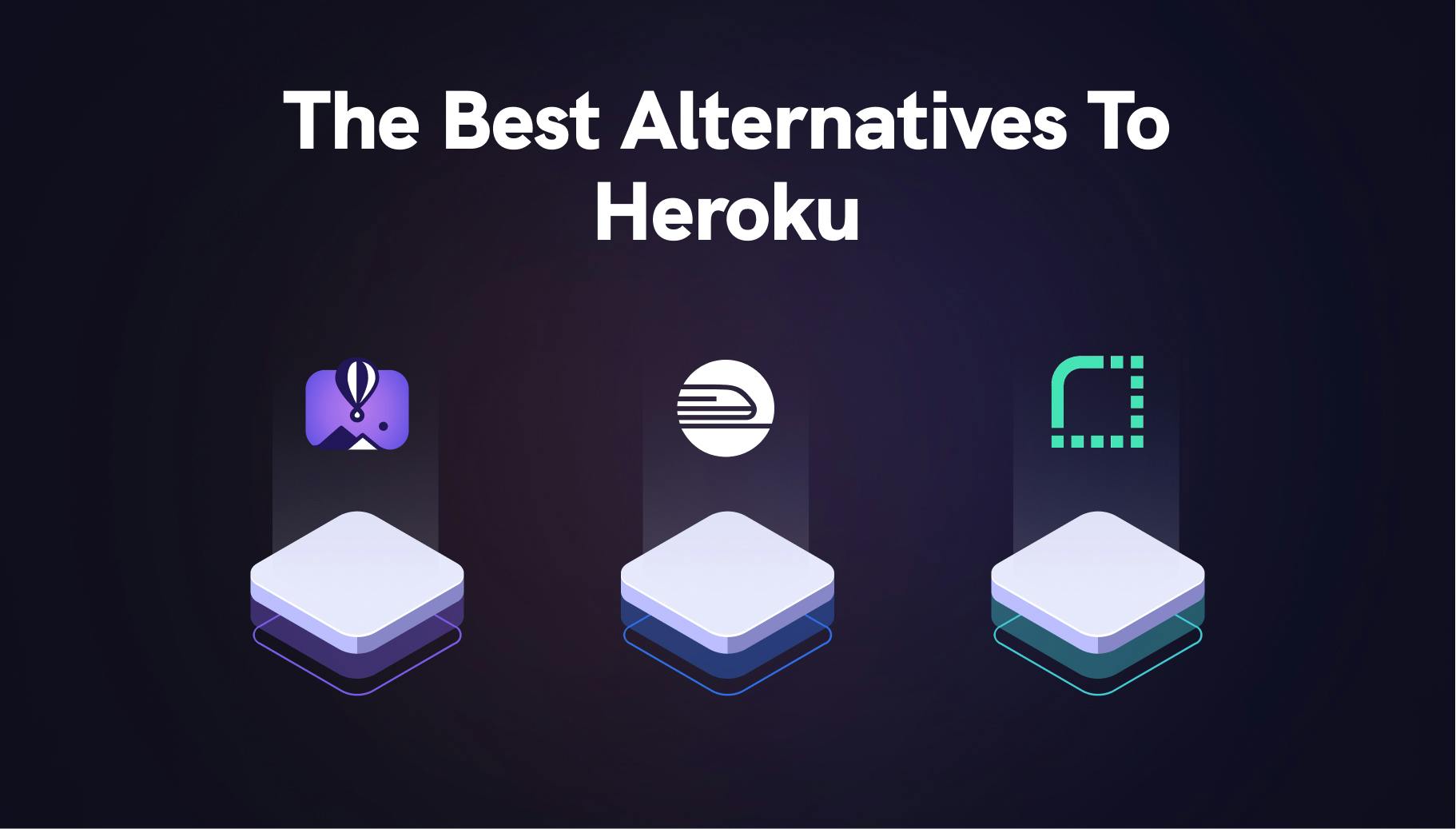AWS vs GCP: Choosing the Best Cloud Provider for Your Needs
If you are confused about whether to go for AWS or Google Cloud (GCP) in 2023, then you should read this article. Both AWS and GCP have made tremendous progress over the past few years. There was a time when AWS was much ahead of Google, but not anymore. Google has reduced the gap to a great extent; it even surpasses AWS in some areas, especially data analytics. However, there is no one-size-fits-all answer to this problem. It will depend on which services you want to use and the particular features in each cloud service. In this article, we will not only compare all the major services provided by AWS and GCP; we will also provide a high-level comparison of both tech giants in terms of pricing and costing models.

Morgan Perry
October 31, 2023 · 11 min read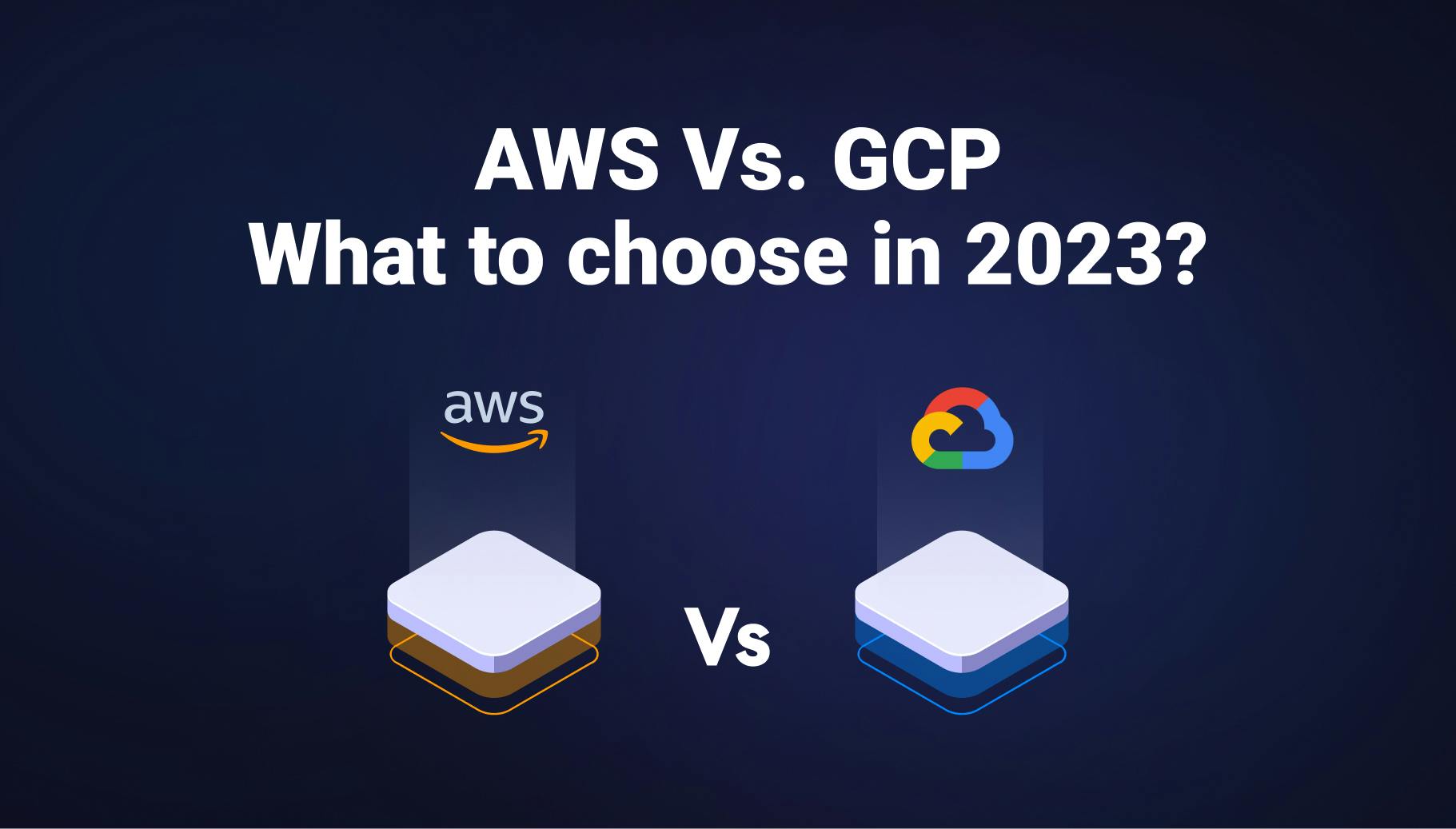
Let's start with the compute service, which is one of the frequently used services.
#1. Compute Comparison
#Virtual Machines
AWS EC2
- Amazon EC2 provides secure, resizable computing capacity in the cloud.
- It offers a variety of options for processors, storage, OS, networking, and purchase models.
- EC2 instances are powered by 4th Gen AMD EPYC processors with a maximum frequency of 3.7GHz.
- AWS EC2 provides the broadest and deepest instance choice to match your workload's needs.
GCP Compute Engine
- Compute Engine is a secure and customizable compute service that lets you create and run virtual machines on Google's infrastructure.
- It provides predefined machine types and custom machine types, allowing users to tailor resources precisely to their needs.
- GCP Compute Engine offers auto-scaling capabilities for instances.
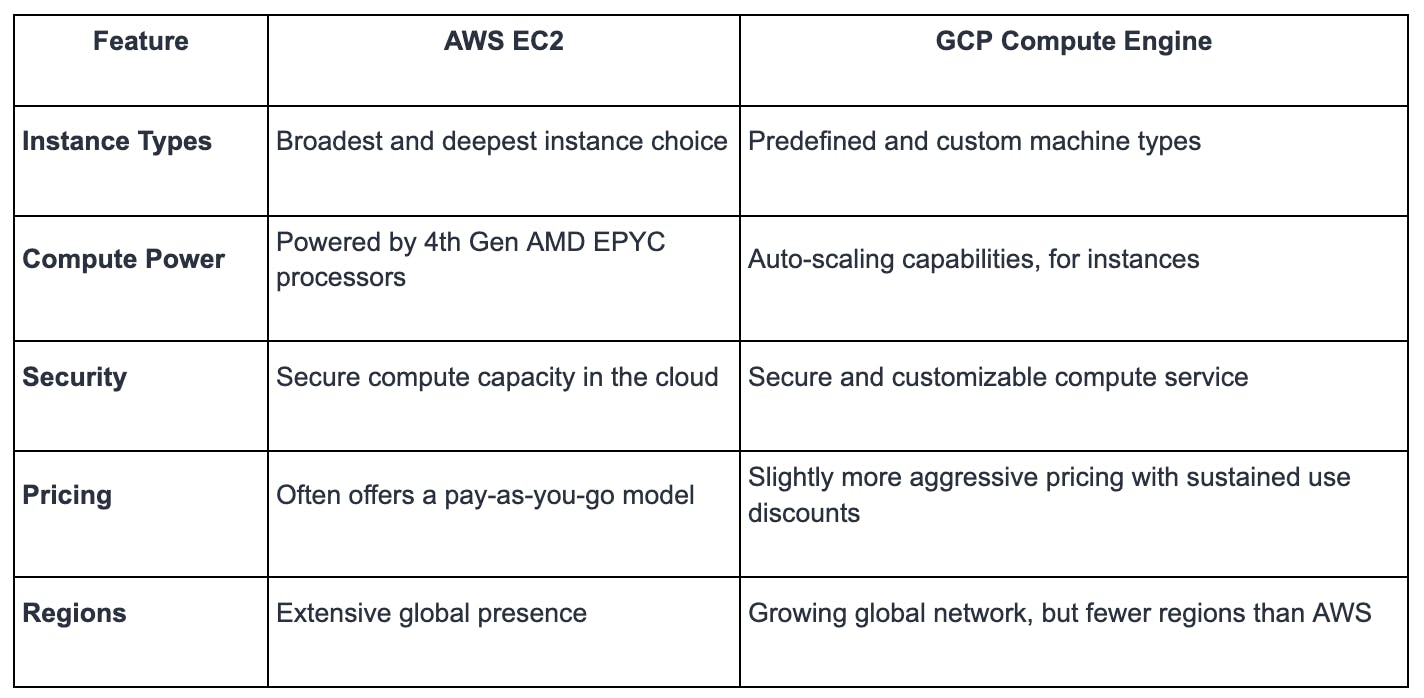
#What to Choose?
Choose AWS if:
- You need a wider range of services and global regions.
- You prefer more flexible pricing options like spot instances.
- You require dedicated hardware for compliance reasons.
Choose GCP if:
- You are heavily using Google services or you are in the Google ecosystem.
- You prefer a simpler pricing model with fewer instance types.
- You want discounts applied automatically without long-term commitments.
#2. Containers Comparison
EKS: AWS-managed Kubernetes service, fully compatible with native Kubernetes. Manages deployment, operations, and scaling of clusters and is integrated with AWS services.
GKE: GCP-managed service for deploying containerized apps. Offers cloud, on-premises, and AWS via Google Anthos. Simplifies cluster creation provides numerous features and boasts a strong user base.
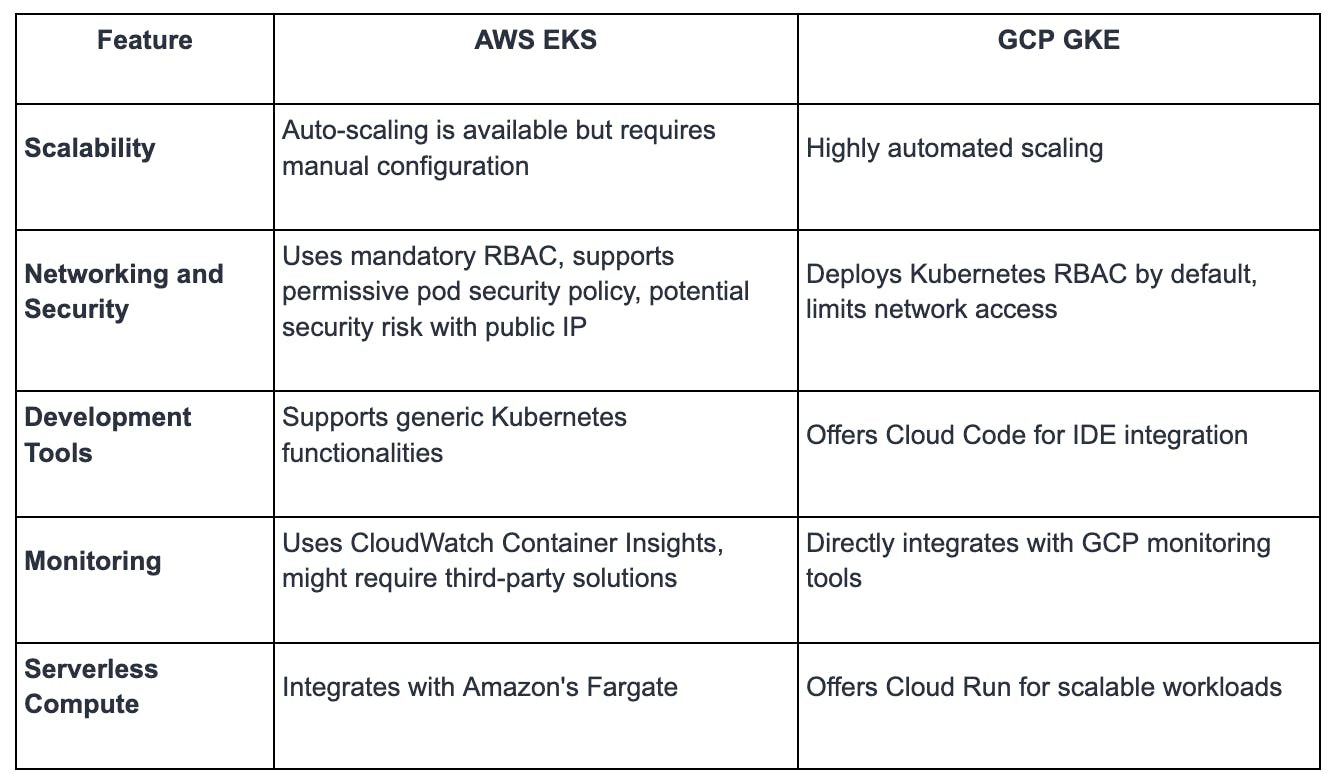
#What to Choose?
Choose AWS for:
- You prefer native AWS Integration. EKS is deeply integrated with AWS services like CloudWatch and IAM.
- While it might require manual steps, EKS offers flexibility and configuration options, especially in scalability and networking.
Choose GCP for:
- GKE provides highly automated solutions, especially for scalability.
- Robust development tools, As GKE's Cloud Code, enhance the development experience.
- It provides direct integration with GCP's monitoring tools and offers a streamlined experience.
#3. Storage Comparison
#File Storage
Amazon EFS (Elastic File System):
- Offers a simple and scalable file storage solution for the AWS Cloud.
- Provides a straightforward interface for quick and easy file system creation and configuration.
- It has elastic storage capacity, which automatically grows and shrinks based on file additions or deletions.
Google Cloud Filestore:
- Provides high-performance, fully managed file storage.
- Designed for applications needing a filesystem interface and shared filesystem for data.
- Facilitates a simple native experience for setting up managed Network Attached Storage (NAS) with Google compute engine and Kubernetes engine instances.
- Allows for independent fine-tuning of performance and capacity, ensuring consistent high performance for file-based workloads.
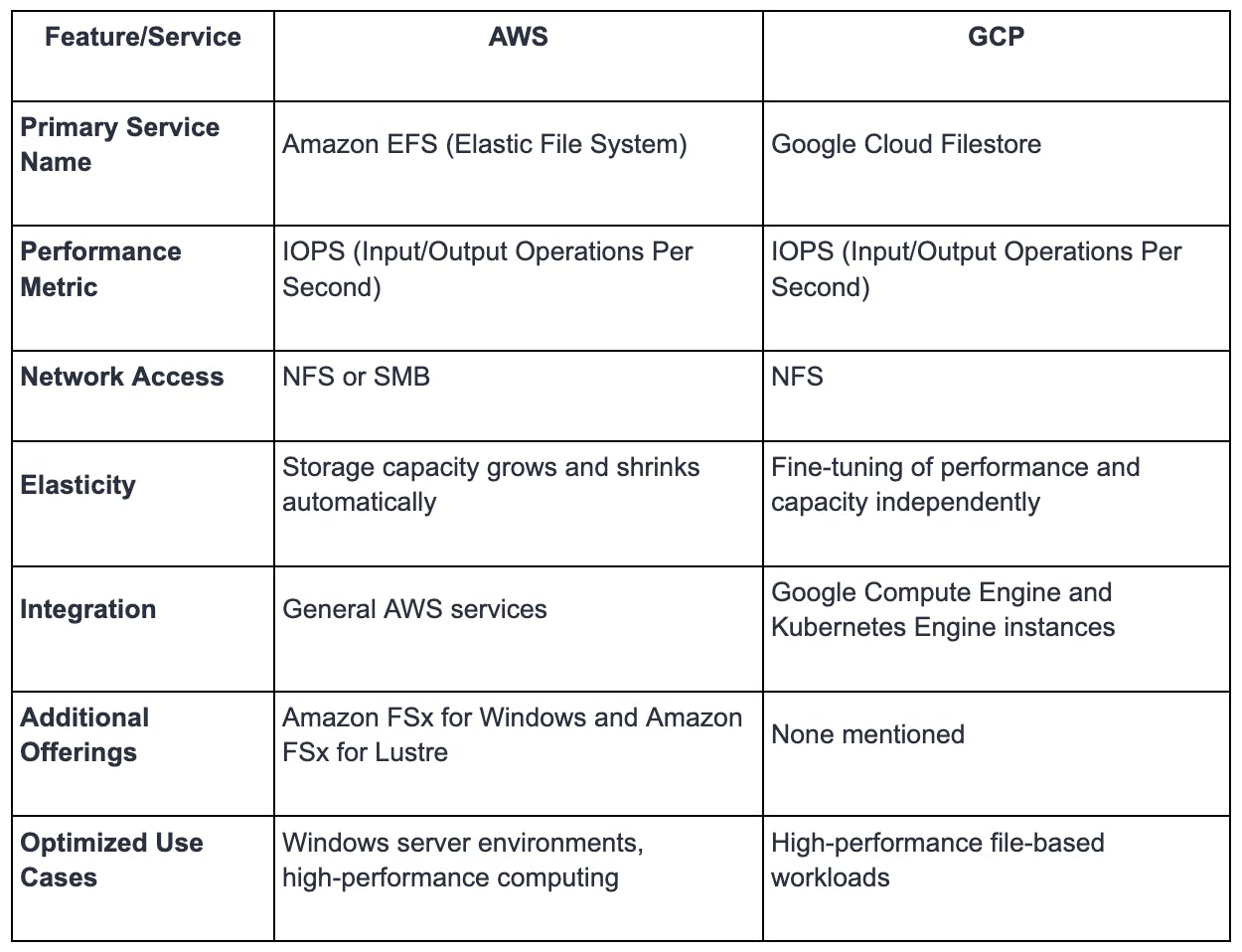
#What to Choose?
Choose AWS if:
- You need a broader range of file storage options. AWS not only provides EFS but also additional services like Amazon FSx for Windows and Amazon FSx for Lustre.
- You are looking for a solution where storage capacity automatically adjusts based on the files added or removed.
Choose GCP if:
- You require a seamless experience for setting up managed NAS with Google Compute Engine and Kubernetes Engine instances.
- You want the ability to independently adjust performance and capacity for consistent high performance in file-based workloads.
#Block Storage
AWS EBS:
- AWS EBS provides high performance with provisioned IOPS (Input/Output Operations Per Second), which is highly desired for workloads that demand low-latency access.
- EBS has a robust snapshot feature that allows for point-in-time backups of your data, ensuring a reliable disaster recovery strategy.
- EBS offers built-in encryption for data at rest and in transit, ensuring a secure environment for sensitive data.
GCP Persistent Disk:
- GCP Persistent Disk also offers competitive performance with balanced persistent disks, providing a good blend of performance and cost-effectiveness.
- One of the standout features is the live migration of instances between host systems, which is a significant advantage during maintenance events.
- It provides automatic replication of data across multiple zones within a region, ensuring high availability and disaster recovery.
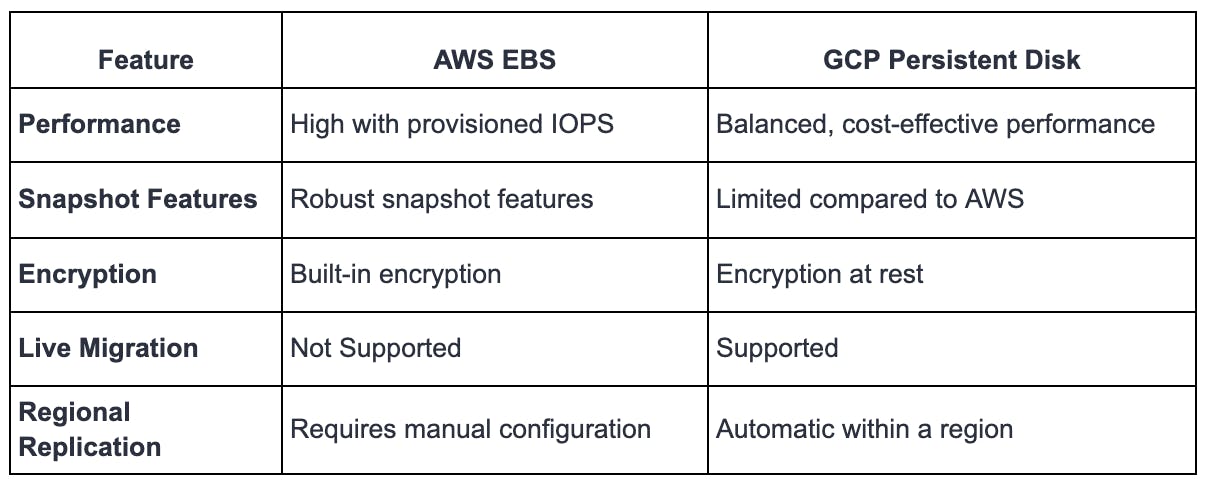
#What to Choose?
Choose AWS if:
- If your workloads require high performance with low latency, AWS EBS, with its provisioned IOPS, is a sound choice.
- For organizations that require robust snapshot capabilities for backup and disaster recovery, AWS stands tall.
Choose GCP if:
- If automatic regional replication for high availability and disaster recovery is a priority, GCP's Persistent Disk has an edge.
- GCP's live migration feature allows for seamless maintenance without downtime, a significant advantage for businesses where uptime is crucial.
#4. Databases Comparison
#Relational Databases
AWS RDS:
- AWS RDS supports several database engines, including MySQL, PostgreSQL, MariaDB, Oracle, and Microsoft SQL Server.
- AWS RDS provides automated backups, database snapshots, and automated software patching.
- RDS facilitates easy replication features to enhance availability and reliability for production workloads.
GCP Cloud SQL:
- Cloud SQL supports MySQL, PostgreSQL, and SQL Server.
- It automates all your backups, failovers, and software patching.
- Cloud SQL has excellent integration with other Google services, making it a more cohesive solution if you're already invested in the Google ecosystem.
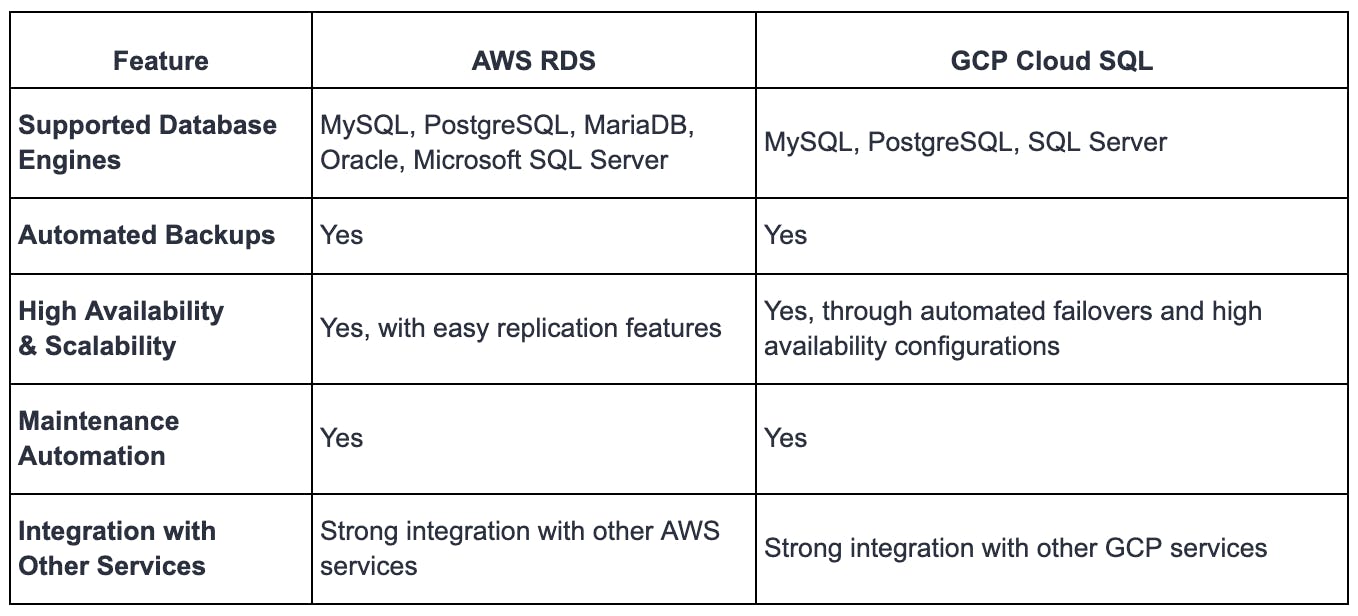
#What to Choose?
Choose AWS if:
- If your project requires a variety of database engines, AWS RDS, with its broader range of supported databases, would be the most suitable choice.
- AWS has a more mature ecosystem and a broader range of additional services that could complement your database operations, making it a more rounded solution if you are looking for more than just a database service.
Choose GCP if:
- If you're already using Google's ecosystem of services, choosing GCP Cloud SQL could be a beneficial move.
- GCP Cloud SQL provides robust maintenance automation, which can significantly reduce the administrative burden on your team. This feature could be a lifesaver, especially for startups or smaller teams with limited resources.
#NoSQL Databases
AWS DynamoDB
- DynamoDB is designed to handle large, high-traffic applications providing consistent, single-digit millisecond latency.
- It's a fully managed database, reducing administrative burdens.
- The serverless capacity mode automatically manages capacity for you, scaling up or down based on the workload.
GCP Firestore/Datastore
- Firestore excels with real-time updates which is a must-have for applications that require real-time functionality.
- Datastore provides strong consistency ensuring reliable data serving.
- Leverages Google's robust infrastructure providing a reliable and scalable database solution.
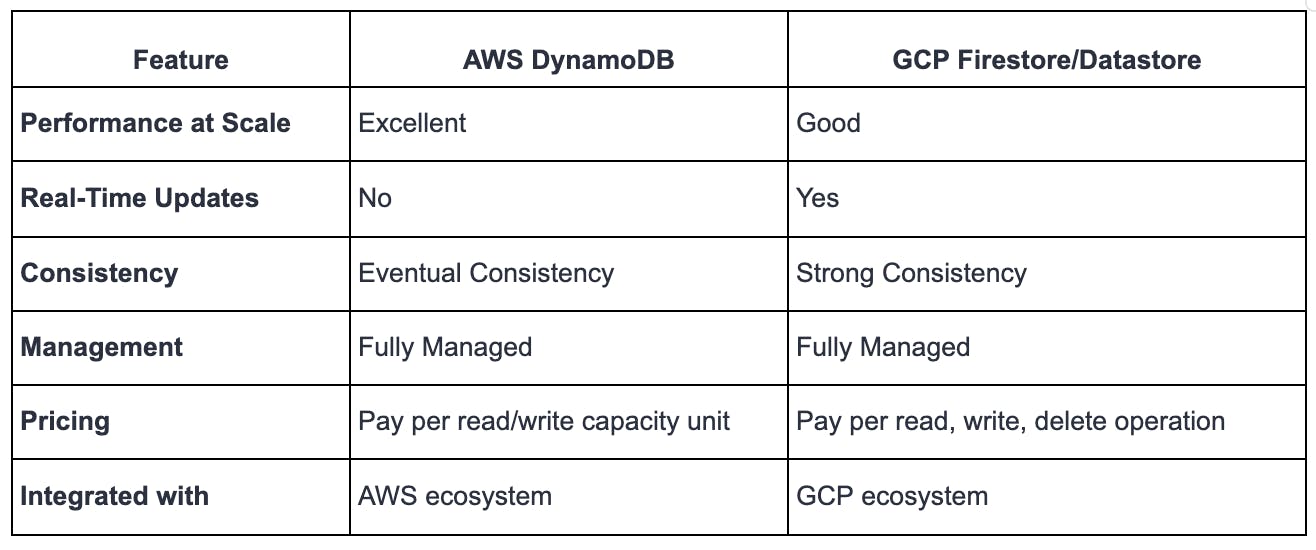
#What to Choose?
Choose AWS if:
- If your application demands high-speed performance at any scale, AWS's DynamoDB is arguably unbeatable. The single-digit millisecond latency ensures your applications run smoothly even under hefty workloads.
- The fully managed nature of DynamoDB, coupled with its serverless capacity mode, significantly reduces the administrative overhead, making it a go-to choice for businesses with limited DevOps resources.
Choose GCP if:
- If your application needs real-time updates, Firestore's capabilities can be a game-changer. Real-time synchronization is vital for applications such as chat apps, financial systems, or any platform where real-time data reflection is crucial.
- GCP's Datastore provides strong consistency, which is crucial for applications where data reliability is a non-negotiable factor. It's a strong contender for scenarios where data integrity and consistency are paramount.
# 5. Networking Comparison
#Virtual Private Cloud
AWS VPC
- AWS VPC has been around for a longer time; hence, it has a more mature set of features and a large community of users.
- It offers a highly customizable environment, allowing for intricate network architectures.
- AWS VPC is part of an integrated ecosystem that allows for seamless interaction with other AWS services.
- There is an extensive amount of documentation, tutorials, and case studies available, which can be very helpful for new users and enterprises.
GCP VPC
- GCP VPC is known for its innovative networking features like global VPCs and premium-tier networking.
- Known for high-speed and low-latency networks, which is critical for certain applications.
- GCP has a strong emphasis on open cloud, which can be a favorable factor for businesses looking for flexibility.
- Being a subsidiary of Google, GCP VPC benefits from strong data and analytics capabilities.
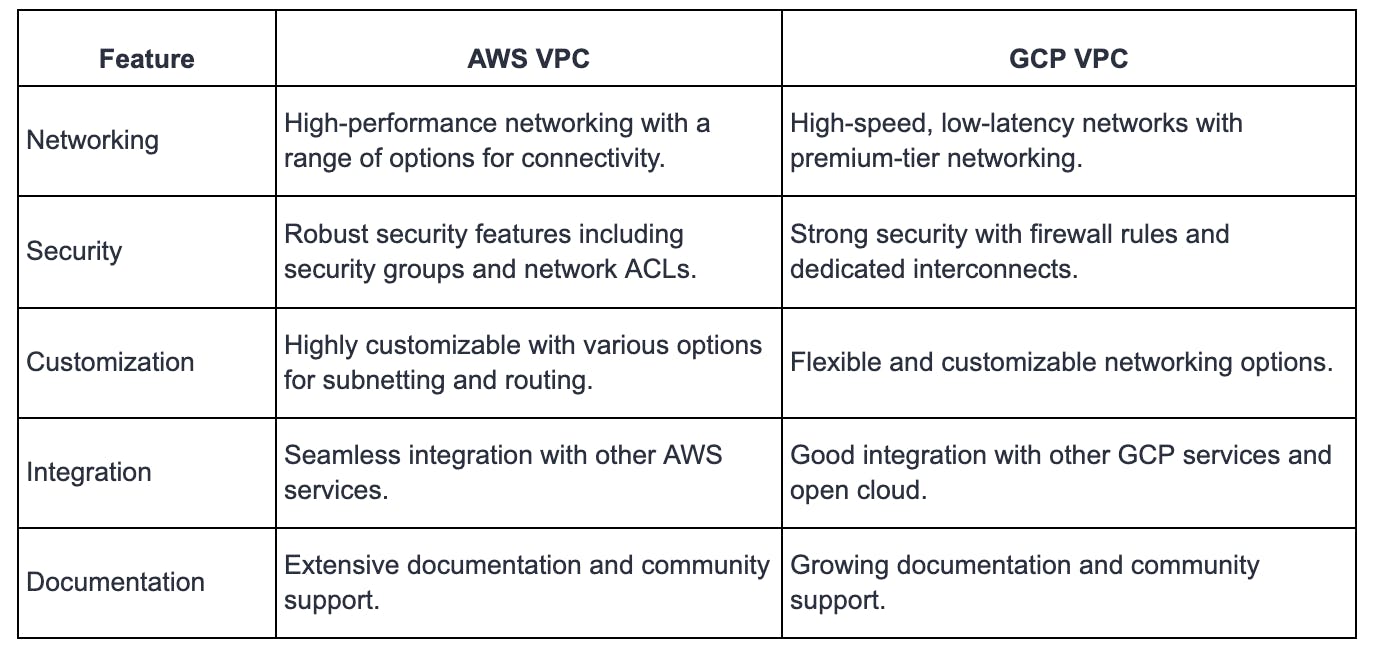
#What to Choose?
Choose AWS if:
- Prefer AWS over GCP if your venture demands a robust, tried-and-tested ecosystem. The maturity of AWS in terms of features, community, and documentation can be a real asset.
- If your project requires a highly customizable environment to create intricate network architectures, AWS could be the better choice.
Choose GCP if:
- Opt for GCP if innovative networking features and high-speed, low-latency networks are at the core of your project requirements.
- If your organization leans towards an open cloud philosophy, GCP's approach to open cloud could align well with your ethos.
#6. AI and Machine Learning
AWS in AI and ML
- AWS offers a variety of tools, such as SageMaker for ML, Comprehend for natural language processing, and Rekognition for image and video analysis.
- With SageMaker, AWS provides a mature and comprehensive platform that caters to seasoned data scientists and ML practitioners.
- AWS has a wide array of documentation, tutorials, and a thriving community, which makes the learning curve easier for newcomers.
GCP in AI and ML
- Google has always been at the forefront of AI and deep learning. With GCP, they bring their AI-first approach to the table, offering services like Vision AI, Video AI, and Natural Language Processing.
- GCP is famous for integrating its services with open-source frameworks, which appeal to a broad base of developers.
- Google's innovative AI solutions, like AutoML, provide a way for individuals with limited ML expertise to build high-quality models.
#AI Comparison: AWS SageMaker Vs. GCP AI Platform
Strengths of AWS SageMaker
- AWS SageMaker is designed to be easy to use with a straightforward approach to building, training, and deploying ML models.
- It comes with a huge set of pre-built algorithms, which can be a timesaver for many developers.
- With SageMaker, you get robust security features, ensuring data privacy and security.
Strengths of GCP AI Platform
- GCP AI Platform is highly integrated with popular open-source tools, providing a familiar environment for developers.
- It offers automated resource provisioning and management, which can be a huge time saver.
- GCP AI Platform provides custom model serving, allowing you to deploy ML models with custom prediction routines.
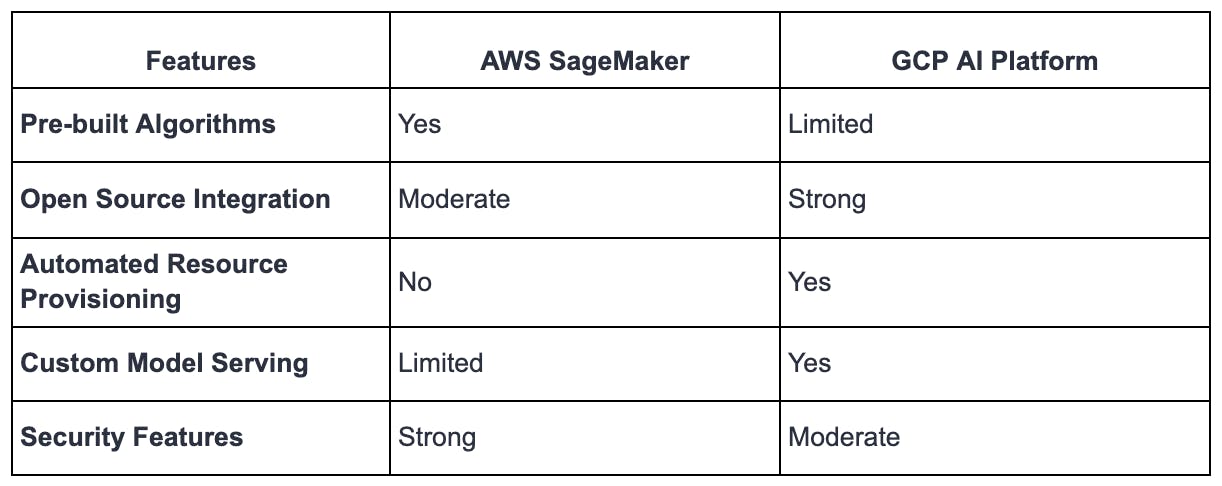
#What to Choose?
Choose AWS if:
- If security is a paramount concern, AWS's strong security features in SageMaker make it a more appealing choice.
- If you prefer having a wide range of pre-built algorithms at your disposal, AWS SageMaker shines in this area.
Choose GCP if:
- If you favor working with open-source tools, GCP's strong integration with open-source frameworks might tilt the scales in its favor.
- If you prefer automated resource provisioning and management, GCP AI Platform stands out.
#7. Pricing Model Comparison
AWS Pricing Models
- On-Demand Pricing: Pay for what you use without upfront commitment.
- Reserved Instances: Commit to using a specific instance type in a specific region for a term of one or three years, with discounts of up to 75% over the same instance charged at the On-Demand rate.
- Spot Instances: Purchase unused EC2 capacity at potentially lower prices, but instances can be terminated if they're needed elsewhere.
- Savings Plans: Provides significant savings over On-Demand pricing, in exchange for a commitment to use a specific amount of resources for a one or three-year period.
GCP Pricing Models
- Sustained Use Discounts: Automatic discounts for running specific GCP services for a significant portion of the billing month.
- Committed Use Discounts: Commit to using GCP for one or three years in exchange for discounted pricing.
- Preemptible VMs: Short-lived VM instances that offer significant savings, ideal for fault-tolerant workloads.
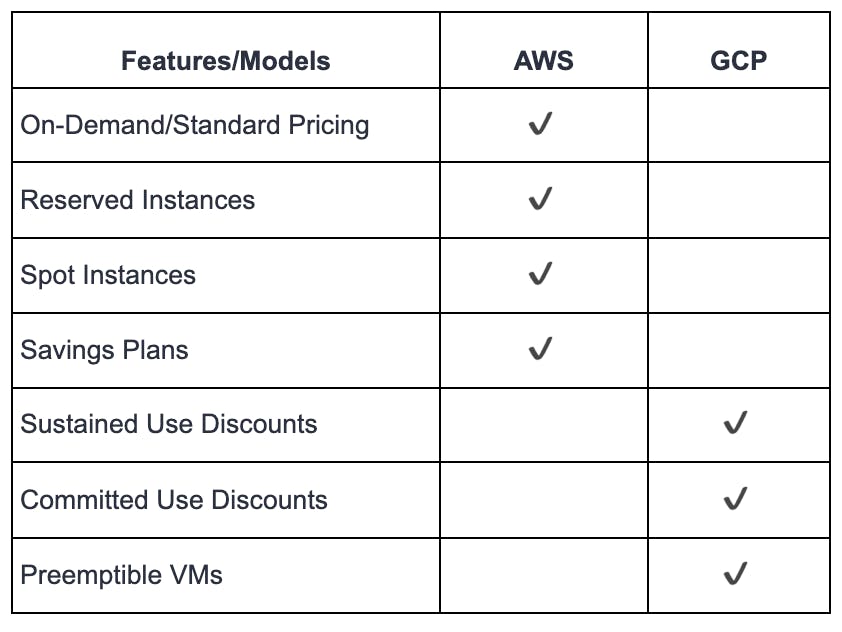
#What to Choose?
Choose AWS if:
- You prefer a platform with a vast array of services and pricing models that can be tailored to unique business requirements. AWS's extensive service offerings, coupled with its pricing options, provide a flexible path for businesses of all shapes and sizes.
- Your organization is in a position to make long-term commitments, which in turn could lead to substantial savings. AWS's Reserved Instances and Savings Plans are geared towards such scenarios.
Choose GCP if:
- You appreciate straightforward pricing without the need to navigate through a variety of options. GCP's pricing model is easier to understand and manage, especially for new businesses or startups.
- You prefer a hands-off approach where discounts are applied automatically as you continue using the services. GCP's sustained use discounts require no upfront commitment and provide an easy way to save as you grow.
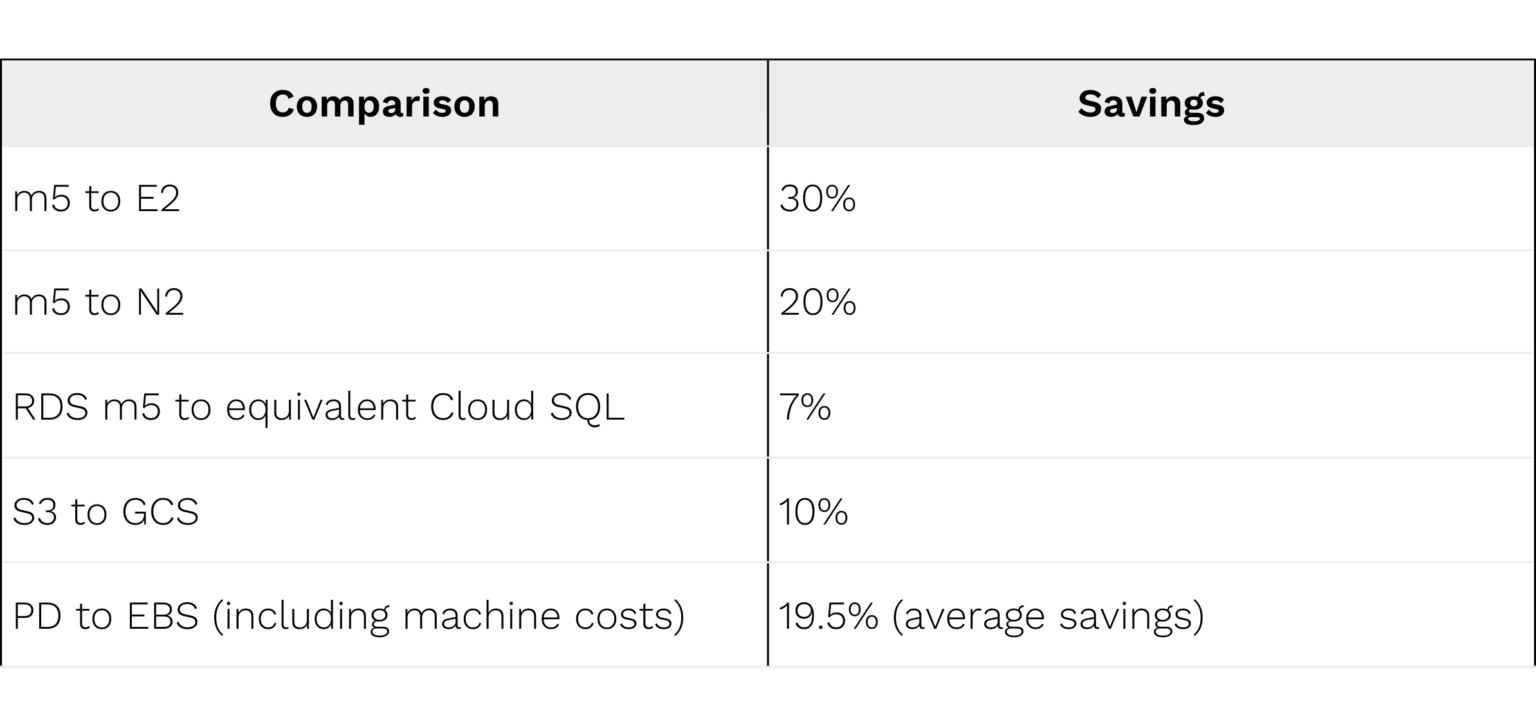
#8. DevOps
Strengths of AWS DevOps
- AWS has a robust set of DevOps tools, such as AWS CodeBuild, AWS CodeDeploy, and AWS CodePipeline, which facilitate end-to-end automation of the software delivery processes.
- Its capacity to seamlessly integrate with a plethora of third-party tools makes AWS a versatile choice for DevOps practitioners.
- The maturity of AWS's ecosystem means there's a vast community of experts and a wealth of resources available, aiding in quicker problem-solving and knowledge sharing.
- The platform offers a high degree of customizability, enabling organizations to tailor their DevOps pipelines as per the unique project requirements.
Strengths of GCP DevOps
- GCP houses intuitive DevOps tools like Cloud Build, Cloud Deploy, and Cloud Functions, which are engineered for simplicity and effectiveness.
- Its strong footing in data analytics and machine learning makes GCP a haven for projects that require real-time insights and data-driven decision-making.
- GCP's love for open source reflects in its DevOps offerings, fostering a culture of transparency and community-driven innovation.
- Often, GCP is enticed with competitive pricing and customer-friendly billing, which can be a deciding factor for cost-sensitive projects.
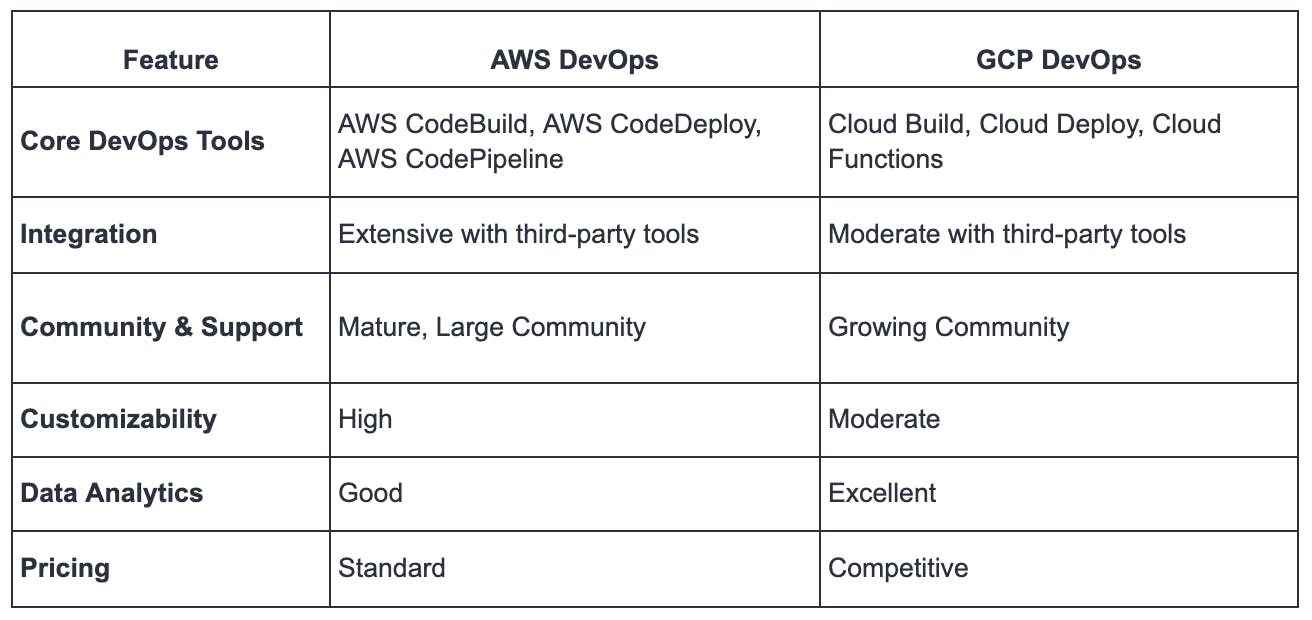
#What to Choose?
Choose AWS if:
- You prefer a mature ecosystem with a vast community and extensive resources. The history of AWS in the DevOps domain is a testimony to its reliability and robustness.
- Your project requires a high degree of customization and integration with other third-party tools. AWS's robust toolset and integration capabilities can be the driving force for complex DevOps pipelines.
Choose GCP if:
- Your project is heavily reliant on data analytics and real-time insights. GCP's strong emphasis on data analytics can significantly bolster data-driven DevOps practices.
- If you are on a tighter budget yet require an effective set of DevOps tools, GCP's competitive pricing can be a magnet for cost-sensitive projects.
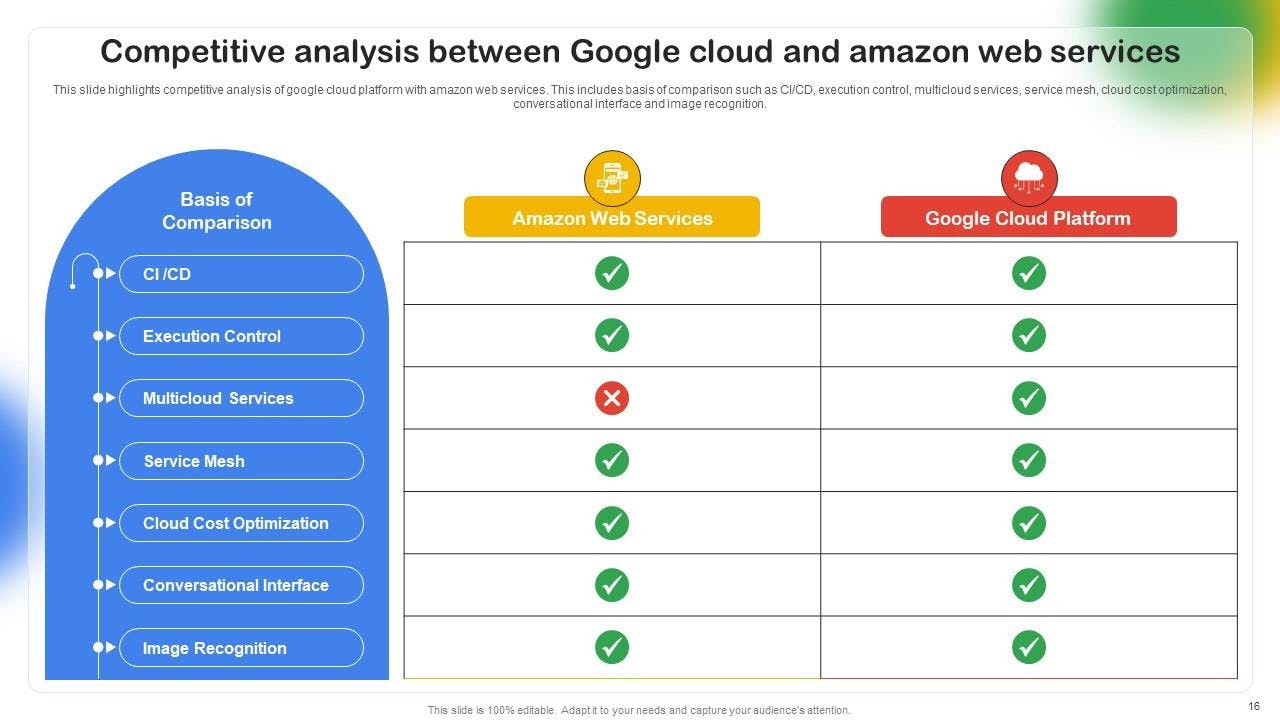
#Conclusion
Choosing the right cloud vendor was probably easy 10 years ago, but not anymore. Many tech giants are offering a wide range of cloud services, so choosing one of those is not easy. In this article, we compared AWS and GCP based on the most frequent cloud services such as compute, networking, storage, AI, etc. The below table will help you find a summary of this comparison.
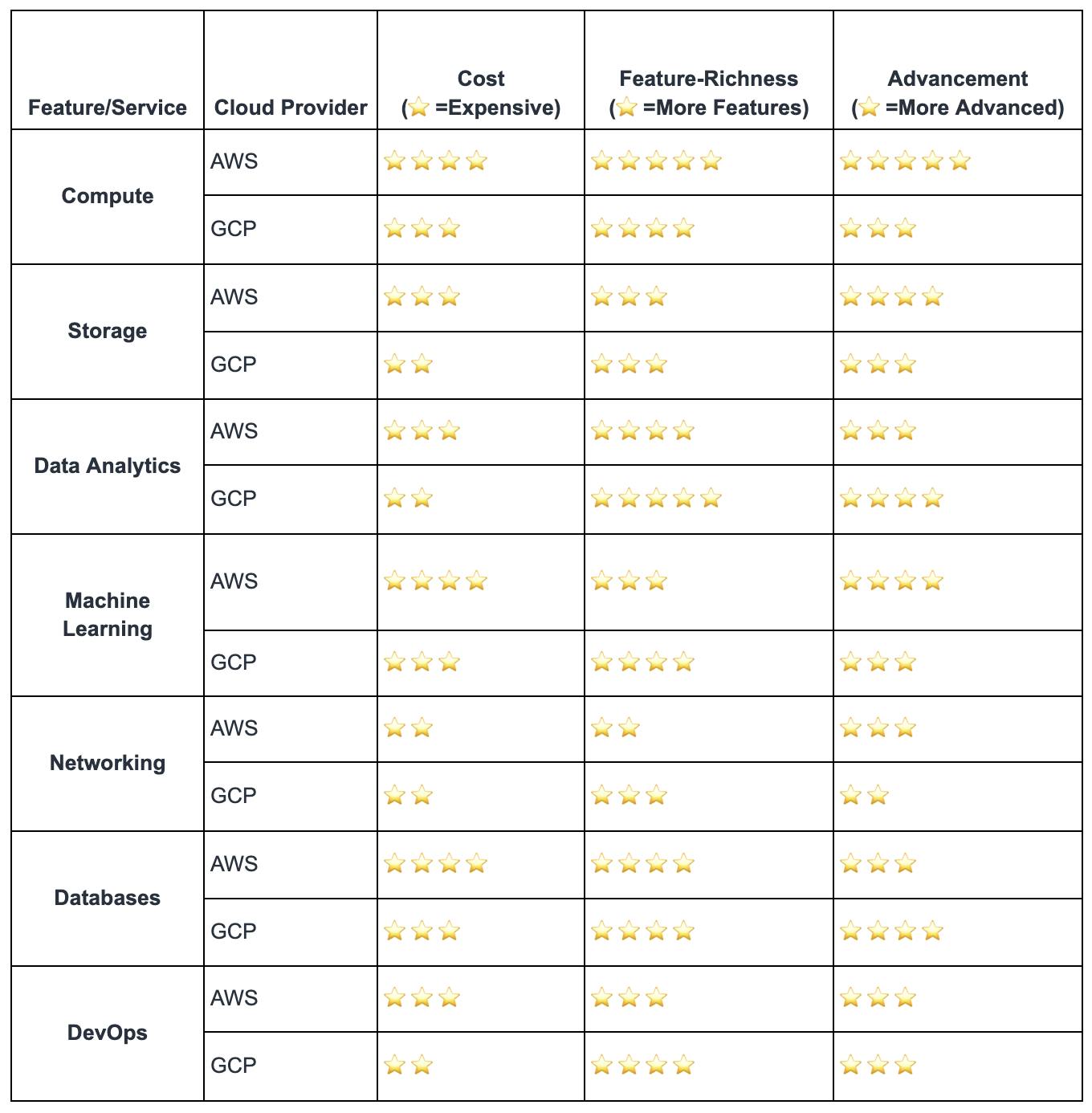
In a nutshell, AWS has the advantage of being a pioneer in the cloud world, so it offers many more services than GCP. GCP, on the other hand, is slightly cheaper than AWS and has made tremendous progress in data analytics and open-source technologies. It will really depend on your use case and your specific needs that will decide whether AWS is the right choice for your business or the GCP. Based on our in-depth comparison for individual cloud services and the summary comparison table above, you should be in a good position to continue with AWS or GCP confidently.
Your Favorite Internal Developer Platform
Qovery is an Internal Developer Platform Helping 50.000+ Developers and Platform Engineers To Ship Faster.
Try it out now!

Your Favorite Internal Developer Platform
Qovery is an Internal Developer Platform Helping 50.000+ Developers and Platform Engineers To Ship Faster.
Try it out now!
